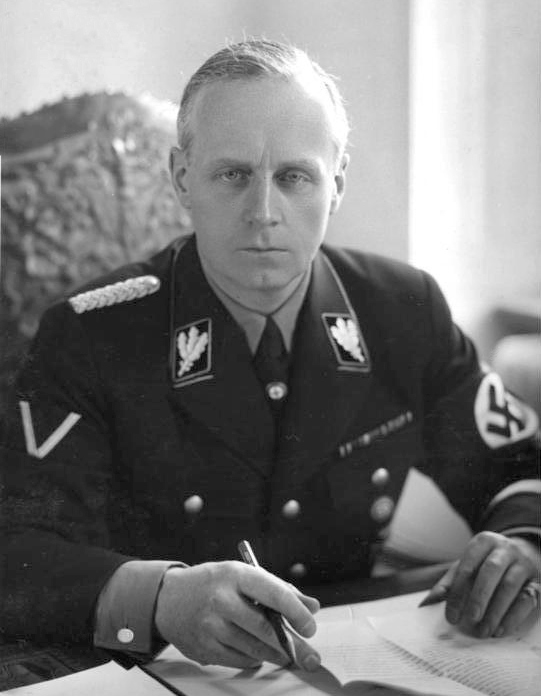Joachim von Ribbentrop
 Ulrich Friedrich-Wilhelm Joachim von Ribbentrop (; 30 April 1893 – 16 October 1946) was a German politician and diplomat who served as Minister of Foreign Affairs of Nazi Germany from 1938 to 1945.
Ulrich Friedrich-Wilhelm Joachim von Ribbentrop (; 30 April 1893 – 16 October 1946) was a German politician and diplomat who served as Minister of Foreign Affairs of Nazi Germany from 1938 to 1945.Ribbentrop first came to Adolf Hitler's notice as a well-travelled businessman with more knowledge of the outside world than most senior Nazis and as a perceived authority on foreign affairs. He offered his house Schloss Fuschl for the secret meetings in January 1933 that resulted in Hitler's appointment as Chancellor of Germany. He became a close confidant of Hitler, to the disgust of some party members, who thought him superficial and lacking in talent. He was appointed ambassador to the Court of St James's, the royal court of the United Kingdom, in 1936 and then Foreign Minister of Germany in February 1938.
Before World War II, he played a key role in brokering the Pact of Steel (an alliance with Fascist Italy) and the Molotov–Ribbentrop Pact (the Nazi–Soviet non-aggression pact). He favoured retaining good relations with the Soviets, opposing the invasion of the Soviet Union. In late 1941, due to American aid to Britain and the increasingly frequent "incidents" in the North Atlantic between U-boats and American warships guarding convoys to Britain, Ribbentrop worked for the failure of the Japanese-American talks in Washington and for Japan to attack the United States. He did his utmost to support a declaration of war on the United States after the attack on Pearl Harbor. From 1941 onwards, Ribbentrop's influence declined.
Arrested in June 1945, Ribbentrop was convicted and sentenced to death at the Nuremberg trials for his role in starting World War II in Europe and enabling the Holocaust. On 16 October 1946, he became the first of the Nuremberg defendants to be executed by hanging. Provided by Wikipedia
1
